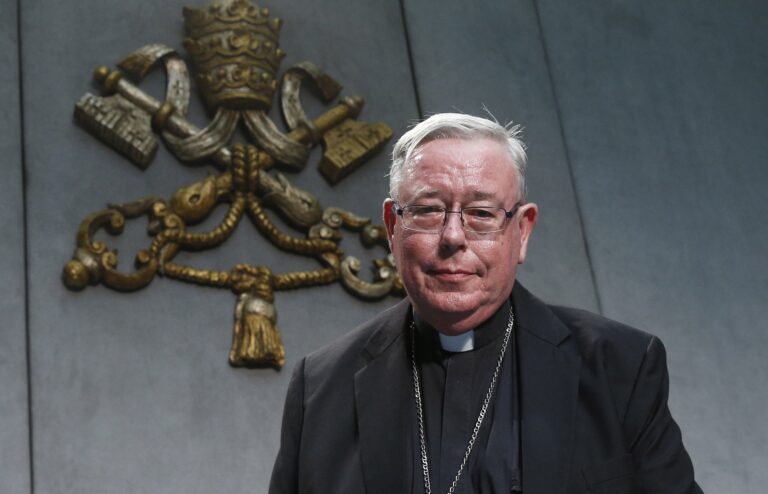According to its moderator, Cardinal Jean-Claude Hollerich, the Synod of Bishops in Rome in October will also include laypeople, women and men. “I could imagine that some of them will also have voting rights,” he told Germany’s Catholic News Agency (KNA) on Friday shortly before the end of the five-day “European stage” of the Catholic World Synod.
Hollerich expressed satisfaction with the discussions of different views in Prague. “I think we got through it well. Things could have been a lot more heated. This applies to what the German delegates said, as well as what others said.” Of course, there were cultural differences, “but that’s something we can put up with”.
The President of the German Bishops’ Conference, Bishop Georg Baetzing, sees Pope Francis as having a duty to carry out reforms. “I would be happy if it were allowed at the level of the Universal Church that things are possible in some local churches that are not or not yet relevant in other parts,” he told KNA on Thursday. The first European Continental Synodal Assembly of the Catholic Church, which was attended by delegations from 39 countries, ended with the reading of a draft final document.
Baetzing referred, for example, to the recognition of gender diversity: “We need new ways, especially in Western Europe, of giving all people a full place in the church, regardless of their identity and orientation, if they as faithful live their lives faithfully and responsibly”.
According to the Bishop of Limburg, Prague showed a “huge range of life, cultural and political realities, as well as tension and diversity”. Accordingly, the preliminary final document was no more than an evaluation of the situation:
“What took place was faithfully recorded; but that is only a first step”. Swiss Bishop Felix Gmuer criticised the text as too vague and called for a clearer definition of the tensions and conflicts.
Other speakers also called for more precise clarifications and further developments. Several speakers from Eastern Europe called for a clearer emphasis on the dogmatic and moral-theological positions of the Catholic Church.
The bishops present will remain in Prague until Saturday evening. Baetzing said: “I will work to ensure that the text, which the entire European Synodal Assembly has contributed to, is not qualified by a second paper”. He said he hoped the bishops would “talk a little more openly and in greater depth about our tensions and divergences”.
And then, he said, all this has to feed into the World Synod in Rome in October. “Prague was exhausting, and Rome will be even more exhausting. The Pope is inviting us to a real adventure with the World Synod; something like it has never happened before. The level of effort will be high, there will be disappointments, and we will see even more clearly that we are travelling at very different speeds”.



